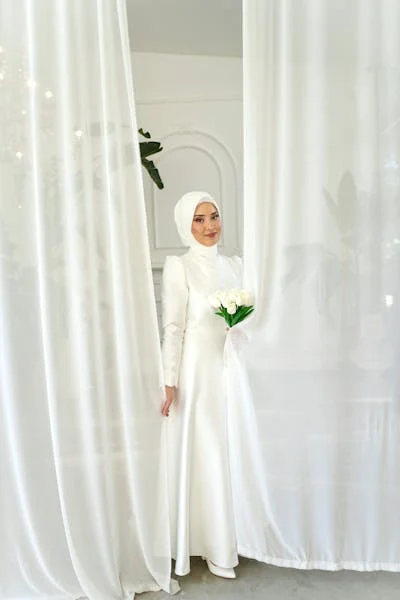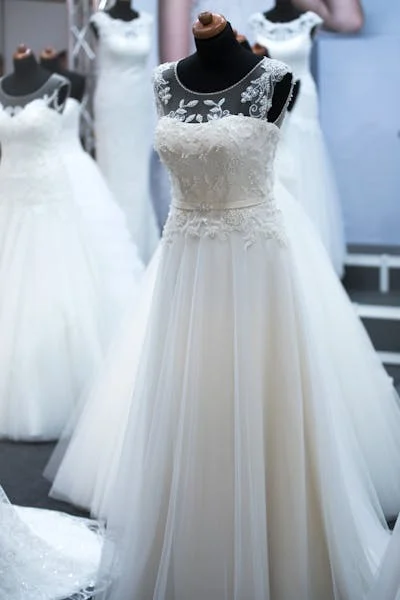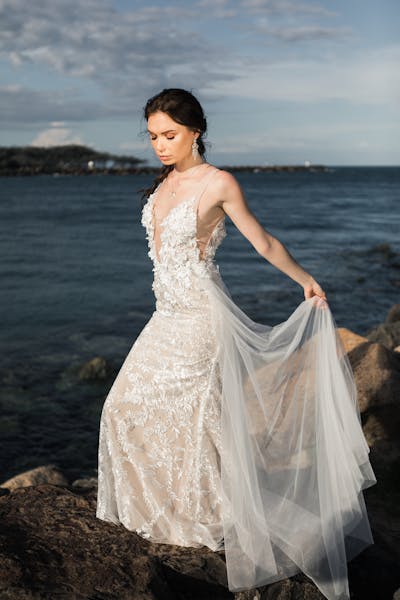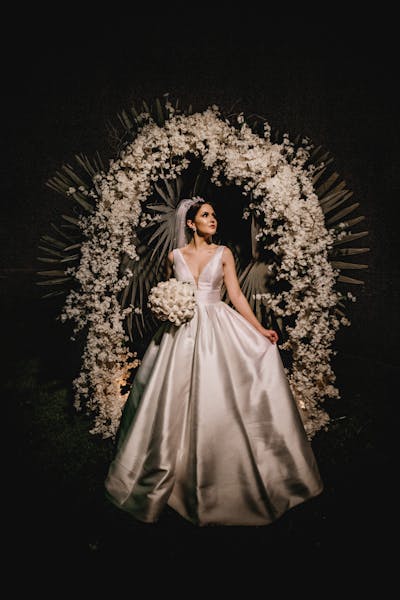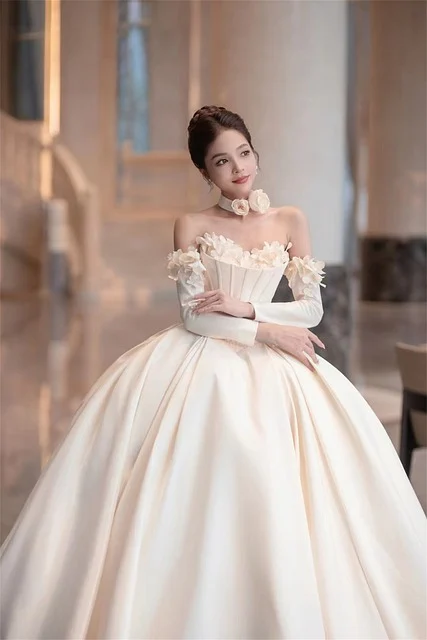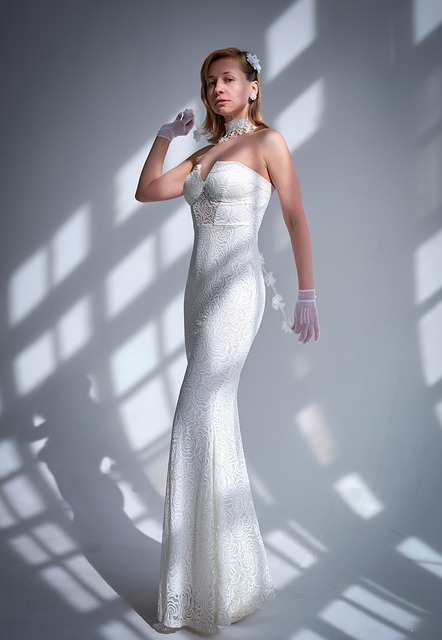
Turkish bridal fashion online The world of Turkish bridal fashion is a mesmerizing blend of tradition, craftsmanship, and modern elegance. With the rise of online platforms, accessing stunning Turkish bridal designs has never been easier. From intricately embroidered gowns to luxurious accessories, Turkish bridal fashion offers brides a unique opportunity to celebrate their heritage while embracing contemporary trends. This 5000-word article explores the evolution, styles, designers, and online shopping trends shaping Turkish bridal fashion today.
The Rich Heritage of Turkish Bridal Fashion
Turkish bridal fashion is deeply rooted in the country’s cultural and historical tapestry. For centuries, Turkish brides have adorned themselves with garments that reflect their regional identity, social status, and personal style. From the opulent designs of the Ottoman era to the minimalist elegance of modern times, Turkish bridal fashion has evolved while retaining its core essence.
Ottoman Influence on Bridal Wear
The Ottoman Empire played a significant role in shaping Turkish bridal fashion. During this period, brides wore elaborate kaftans and heavily embroidered dresses made from luxurious fabrics like silk, velvet, and satin. Gold and silver threadwork, along with intricate lace, were common features. These designs symbolized wealth and prestige, with each region showcasing distinct patterns and techniques.
- Key Elements: Rich fabrics, gold embroidery, and layered designs.
- Modern Adaptations: Designers today incorporate Ottoman-inspired motifs into contemporary gowns, blending tradition with modern silhouettes.
Regional Diversity in Bridal Attire
Turkey’s diverse geography has given rise to a variety of bridal styles. In Anatolia, brides often wear vibrant, handwoven dresses with bold colors like red and burgundy. In contrast, Aegean and Mediterranean regions favor lighter fabrics and softer hues, such as ivory and pastel tones. These regional differences continue to influence modern bridal collections available online.
- Anatolian Style: Bold colors, heavy embroidery, and traditional headpieces.
- Coastal Style: Flowy gowns, minimalist designs, and delicate accessories.
The Evolution of Turkish Bridal Fashion
As Turkey modernized, so did its bridal fashion. The 20th century saw a shift toward Western-inspired gowns, with white dresses becoming increasingly popular. However, Turkish designers have masterfully blended these global trends with local traditions, creating a unique aesthetic that appeals to brides worldwide.
The Rise of White Gowns
While traditional Turkish bridal attire often featured vibrant colors, the influence of Western bridal fashion introduced white and ivory gowns. These dresses, often adorned with lace, tulle, and beadwork, became a symbol of purity and elegance. Today, white gowns dominate Turkish bridal collections, with designers adding cultural touches like hand-embroidered motifs or Ottoman-inspired embellishments.
Fusion of Tradition and Modernity
Modern Turkish bridal fashion is characterized by its ability to balance tradition and innovation. Designers experiment with silhouettes, fabrics, and embellishments to create gowns that appeal to both traditional and contemporary brides. For example, a gown might feature a sleek, modern cut with intricate Ottoman-style embroidery, offering the best of both worlds.
- Popular Fabrics: Tulle, satin, organza, and lace.
- Trending Embellishments: Crystal beadwork, floral appliqués, and metallic threads.
Exploring Turkish Bridal Fashion Online
The advent of e-commerce has revolutionized the way brides shop for their wedding attire. Online platforms have made Turkish bridal fashion accessible to a global audience, allowing brides to browse and purchase stunning designs from the comfort of their homes. This section explores the benefits, challenges, and trends of shopping for Turkish bridal fashion online.
Benefits of Shopping Online
Online shopping offers unparalleled convenience and variety. Brides can explore collections from top Turkish designers, compare prices, and read reviews without visiting physical stores. Additionally, many online retailers offer customization options, allowing brides to tailor their gowns to their preferences.
- Accessibility: Shop from anywhere in the world.
- Variety: Access to both local and international designers.
- Customization: Many platforms offer made-to-measure services.
Challenges of Online Bridal Shopping
Despite its advantages, online shopping for bridal wear comes with challenges. Sizing issues, fabric quality concerns, and shipping delays are common pitfalls. To mitigate these risks, brides should research retailers thoroughly, read customer reviews, and request fabric swatches when possible.
- Sizing Tips: Check size charts and consider custom measurements.
- Quality Assurance: Choose reputable retailers with clear return policies.
- Shipping Considerations: Plan ahead to account for delivery times.
Top Online Platforms for Turkish Bridal Fashion
Several online platforms specialize in Turkish bridal fashion, offering a wide range of dresses, accessories, and customization options. Below are some of the most popular websites for brides seeking Turkish designs:
- Modanisa: Known for its extensive collection of modest bridal wear, Modanisa offers elegant gowns with intricate details.
- Hepsiburada: A leading Turkish e-commerce platform, Hepsiburada features bridal collections from both established and emerging designers.
- Trendyol: This popular site showcases a mix of traditional and modern bridal gowns, catering to diverse tastes.
- Etsy: For unique, handmade designs, Etsy connects brides with independent Turkish designers offering bespoke creations.
- International Retailers: Websites like ASOS and Net-a-Porter occasionally feature Turkish-inspired bridal collections.
Iconic Turkish Bridal Designers
Turkey is home to a vibrant community of bridal fashion designers who have gained recognition both locally and internationally. These designers combine traditional craftsmanship with modern aesthetics, creating gowns that are both timeless and trendsetting.
Özgür Masur
Özgür Masur is a household name in Turkish bridal fashion, known for his avant-garde designs and meticulous attention to detail. His collections often feature bold silhouettes, luxurious fabrics, and intricate embellishments, making them a favorite among fashion-forward brides.
- Signature Style: Dramatic trains, sculptural shapes, and crystal embellishments.
- Online Availability: Available through his official website and select retailers.
Zuhair Murad (Turkish Influence)
While Zuhair Murad is Lebanese, his designs are heavily inspired by Turkish and Ottoman aesthetics, making him a popular choice among Turkish brides. His gowns feature intricate embroidery, flowing trains, and opulent fabrics that resonate with Turkey’s bridal heritage.
- Signature Style: Romantic silhouettes, ornate embroidery, and ethereal fabrics.
- Online Availability: Available through international retailers like Net-a-Porter.
Begüm Salihoğlu
Begüm Salihoğlu is celebrated for her minimalist yet elegant designs. Her collections cater to brides seeking understated luxury, with clean lines, soft fabrics, and subtle embellishments that highlight natural beauty.
- Signature Style: Minimalist gowns, delicate lace, and soft color palettes.
- Online Availability: Available through her website and select boutiques.
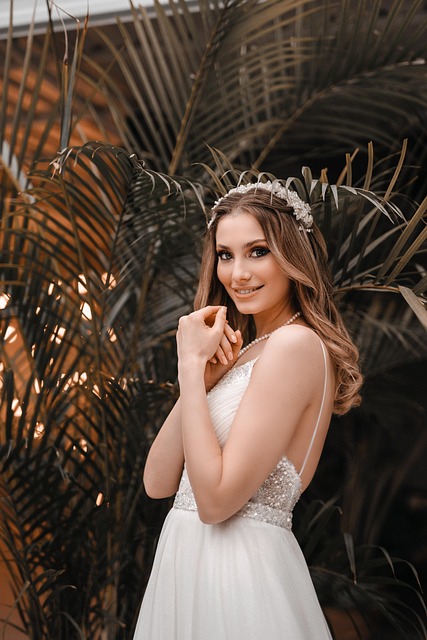
Popular Styles in Turkish Bridal Fashion
Turkish bridal fashion encompasses a wide range of styles, from traditional to contemporary. Below are some of the most popular styles available online, each reflecting a unique aspect of Turkey’s cultural heritage.
Traditional Bindallı Dresses
The bindallı is a traditional Turkish bridal dress, often worn during henna nights or other pre-wedding ceremonies. These dresses are characterized by their rich colors (typically red, burgundy, or gold), heavy embroidery, and ornate headpieces.
- Modern Adaptations: Designers now offer lightweight bindallı dresses with modern cuts for added comfort.
- Online Availability: Available on platforms like Etsy and Modanisa.
A-Line Gowns
A-line gowns are a timeless choice for Turkish brides, offering a flattering silhouette that suits most body types. These gowns are often adorned with lace, tulle, or beadwork, adding a touch of elegance.
- Trending Features: Off-the-shoulder necklines, floral appliqués, and long trains.
- Online Availability: Widely available on Trendyol and Hepsiburada.
Mermaid Dresses
Mermaid dresses, which hug the body and flare out at the knees, are a popular choice for brides seeking a glamorous look. Turkish designers enhance these gowns with intricate embroidery and sparkling embellishments.
- Trending Features: Illusion necklines, crystal beadwork, and dramatic veils.
- Online Availability: Available through designers like Özgür Masur and international retailers.
Modest Bridal Wear
Turkey is a hub for modest bridal fashion, catering to brides who prefer covered designs. These gowns feature long sleeves, high necklines, and flowing trains, often adorned with delicate lace and subtle embellishments.
- Trending Features: Hijab-compatible designs, layered tulle, and pearl accents.
- Online Availability: Modanisa is a leading platform for modest bridal wear.
Accessories in Turkish Bridal Fashion
No Turkish bridal look is complete without the right accessories. From headpieces to jewelry, these elements play a crucial role in enhancing the overall aesthetic. Online platforms offer a wide range of accessories to complement Turkish bridal gowns.
Headpieces and Veils
Traditional Turkish brides often wear ornate headpieces, such as gold crowns or embroidered veils, during ceremonies like the henna night. Modern brides may opt for minimalist tiaras or long, flowing veils adorned with lace or crystals.
- Trending Styles: Floral crowns, crystal-encrusted tiaras, and cathedral-length veils.
- Online Availability: Available on Etsy and Trendyol.
Jewelry
Turkish bridal jewelry is known for its opulence, with gold and silver pieces featuring intricate designs. Statement necklaces, chandelier earrings, and embellished bracelets are popular choices.
- Trending Styles: Ottoman-inspired designs, pearl accents, and gemstone embellishments.
- Online Availability: Available through Turkish jewelers and international retailers.
Shoes and Clutches
Bridal shoes and clutches are designed to complement the gown while adding a touch of personality. Turkish designers offer everything from embellished heels to embroidered clutches, ensuring brides look polished from head to toe.
- Trending Styles: Metallic heels, beaded clutches, and satin finishes.
- Online Availability: Available on Hepsiburada and ASOS.
Trends Shaping Turkish Bridal Fashion in 2025
As we move into 2025, Turkish bridal fashion continues to evolve, with new trends emerging on online platforms. These trends reflect a blend of global influences and Turkey’s rich cultural heritage.
Sustainable Bridal Fashion
Sustainability is a growing concern in the fashion industry, and Turkish bridal designers are embracing eco-friendly practices. From using organic fabrics to offering rental services, sustainable bridal wear is gaining traction online.
- Key Features: Organic cotton, recycled lace, and biodegradable packaging.
- Online Availability: Emerging on platforms like Etsy and boutique websites.
Bold Color Palettes
While white and ivory remain popular, Turkish brides are increasingly experimenting with bold colors like blush pink, champagne, and even deep jewel tones. These colors add a modern twist to traditional designs.
- Trending Colors: Blush, emerald green, and sapphire blue.
- Online Availability: Available through designers like Begüm Salihoğlu.
Statement Sleeves
Statement sleeves, such as puffed, bishop, or detachable designs, are a major trend in Turkish bridal fashion. These sleeves add drama and elegance to gowns, making them a focal point of the look.
- Trending Styles: Sheer lace sleeves, voluminous puffs, and detachable designs.
- Online Availability: Widely available on Trendyol and Modanisa.
Tips for Choosing the Perfect Turkish Bridal Gown Online
Selecting a bridal gown online can be daunting, but with the right approach, brides can find their dream dress. Below are some practical tips for navigating the world of Turkish bridal fashion online.
Research Designers and Retailers
Before making a purchase, research designers and retailers to ensure they are reputable. Read customer reviews, check return policies, and verify the authenticity of the designs.
- Pro Tip: Look for retailers with detailed product descriptions and high-quality images.
Consider Your Body Type
Choose a gown that flatters your body type. A-line dresses suit most figures, while mermaid gowns accentuate curves. Ball gowns are ideal for creating a dramatic, princess-like look.
- Pro Tip: Use online sizing tools or consult with customer service for guidance.
Plan for Alterations
Even with custom measurements, alterations may be necessary. Factor in time and budget for fittings to ensure the gown fits perfectly.
- Pro Tip: Work with a local tailor experienced in bridal wear.
Coordinate with Accessories
When shopping online, consider how the gown will pair with accessories like veils, jewelry, and shoes. Many platforms offer curated bridal sets to simplify the process.
- Pro Tip: Order accessories early to ensure they match the gown.
The Future of Turkish Bridal Fashion Online
The future of Turkish bridal fashion is bright, with online platforms playing a pivotal role in its growth. As technology advances, we can expect innovations like virtual try-ons, AI-powered design tools, and augmented reality showrooms to enhance the shopping experience.
Virtual Try-Ons and AR Technology
Virtual try-ons allow brides to see how a gown will look on them without visiting a store. Augmented reality (AR) showrooms take this a step further, offering immersive shopping experiences.
- Potential Impact: Increased confidence in online purchases.
- Current Availability: Emerging on select platforms.
AI-Powered Customization
AI tools are being developed to help brides design custom gowns based on their preferences. These tools analyze style, body type, and budget to create personalized recommendations.
- Potential Impact: Streamlined customization process.
- Current Availability: In development by leading retailers.
Global Expansion
As Turkish bridal fashion gains international recognition, online platforms are expanding their reach. This allows brides from around the world to access authentic Turkish designs with ease.
- Potential Impact: Increased demand for Turkish designers.
- Current Availability: Already underway through platforms like Etsy and ASOS.
Turkish bridal fashion online is a vibrant and evolving industry, offering brides a unique blend of tradition, elegance, and modernity. From Ottoman-inspired gowns to minimalist designs, the variety available on online platforms caters to every taste and budget. By understanding the heritage, exploring top designers, and embracing emerging trends, brides can find the perfect gown to make their wedding day unforgettable. Whether you’re drawn to the opulence of a bindallı or the simplicity of an A-line dress, the world of Turkish bridal fashion is just a click away.
Bridal fashion in 2025 blends timeless elegance with modern innovation, offering diverse styles for every bride. Drawing from your interest in wedding dresses, Turkey’s bridal industry, and bulk purchasing, here’s a concise overview of current bridal fashion trends and online shopping options, tailored to your preferences.
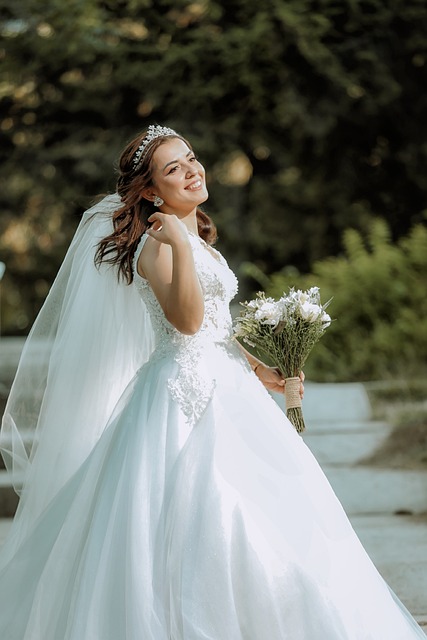
2025 Bridal Fashion Trends
- Silhouettes: A-line, mermaid, and ball gowns remain staples, with sheath dresses and bridal separates (e.g., tops and skirts) gaining popularity for versatility and modern appeal. Boho and minimalist styles are trending, especially in Turkey’s market.
- Fabrics: Lace, tulle, satin, and chiffon dominate, with organza and sustainable materials like recycled silk rising for eco-conscious brides.
- Details: Low-back designs, detachable trains, bow accents, and 3D floral appliqués are key. Non-traditional elements like colorful gowns (blush, champagne) and jumpsuits cater to bold brides.
- Cultural Influences: In Turkey, intricate embroidery and luxurious fabrics reflect cultural heritage, blending Eastern opulence with Western simplicity for global appeal.
Top Online Platforms for Bridal Fashion
- Etsy (etsy.com): Unique, handcrafted, or vintage dresses from small designers, often with discounts. Ideal for Turkish-inspired or bespoke gowns.
- David’s Bridal (davidsbridal.com): Budget-friendly dresses under $1,000, including petite and plus-size. Frequent sales due to store closures.
- Shopbop (shopbop.com): Trendy, non-traditional dresses for modern brides, with next-day shipping.
Bulk Purchasing for Bridal Fashion (Your Interest)
Given your focus on bulk bridal dress orders, online platforms like Brydealo Factory and Premium Bridal Factory offer competitive pricing for A-line, mermaid, and boho designs in lace, tulle, and satin. These suppliers provide:
- Cost Efficiency: Discounts on bulk orders, ideal for retailers or boutiques in İzmir or Turkey’s growing bridal market.
- Variety: Diverse silhouettes and fabrics to cater to local and international clients.
- Quality Assurance: Request samples or use virtual consultations to verify craftsmanship, as you’ve previously emphasized reliability concerns.
Turkey’s Bridal Fashion Online
Turkey’s bridal industry is booming, with online stores showcasing luxurious gowns blending cultural motifs and modern trends. Platforms like Aza Fashions feature designers with intricate, Turkey-inspired designs, while Etsy hosts Turkish artisans offering boho and vintage gowns. For bulk orders, contact suppliers directly or explore trade shows in İzmir to connect with local manufacturers.
Shopping Tips
- Timing: Order 6–12 months ahead for custom gowns, though rush options (e.g., Avery Austin) deliver in 8 weeks, addressing your past timing concerns.
- Sizing: Bridal sizes run small; use size charts or consult stylists (available at Olivia Bottega).
- Budget: Save with secondhand sites like StillWhite or discounts on THE OUTNET (up to 50% off).
- Accessories: Pair gowns with veils, headpieces, or jewelry from Azazie or Anthropologie for a complete look.
Based on your interest in bridal designers and our previous conversations about wedding dresses, particularly Turkish bridal fashion and 2025 trends, I’ll provide a concise overview of notable bridal designers, focusing on those who align with modern and cultural preferences, including Turkish influences. Since you’ve previously explored Turkish designers like Züleyha Kuru and Aysira, I’ll incorporate some of that context while highlighting global and regional designers known for their innovative and timeless wedding gowns.
Top Bridal Designers for 2025
Global Bridal Designers
- Danielle Frankel (New York, USA)
- Style: Modern, minimalist with a touch of whimsy. Known for layering, unique separates, and intricate craftsmanship.
- 2025 Trends: Her Fall 2025 collection emphasizes scalloped detailing and bold choices like black bridal gowns, appealing to fashion-forward brides.
- Why Notable: A CFDA Fashion Fund runner-up, she’s dressed celebrities like Zoe Kravitz and Julia Garner, redefining bridal with a contemporary edge.
- Price Range: $3,000–$12,000+ for couture pieces.
- Vera Wang (New York, USA)
- Style: Iconic for dramatic, romantic, and avant-garde designs, blending classic silhouettes with bold details.
- 2025 Trends: Expect voluminous bubble skirts, a key trend from New York Bridal Fashion Week Spring 2026, and luxurious fabrics like tulle and organza.
- Why Notable: A bridal industry legend, her gowns are synonymous with luxury and are available at boutiques like Mark Ingram Atelier.
- Price Range: $2,500–$15,000+.
- Monique Lhuillier (Los Angeles, USA)
- Style: Romantic and glamorous, featuring delicate embroidery, floral accents, and playful ruffles.
- 2025 Trends: Her designs lean into classic silhouettes with modern twists, ideal for brides seeking sophistication with personality.
- Why Notable: Perfect for glamorous outdoor or summer weddings, her gowns are a favorite for their feminine charm.
- Price Range: $2,200–$10,000.
- Galia Lahav (Tel Aviv, Israel)
- Style: High-fashion couture with intricate craftsmanship, focusing on opulent, curve-hugging silhouettes.
- 2025 Trends: Her SS 2026 collection includes transformative designs with detachable elements like cathedral trains and bold lace details.
- Why Notable: Known for sensual and regal gowns, available globally, including in European flagship stores.
- Price Range: $2,600–$15,000+.
- Ashi Studio (Beirut, Lebanon)
- Style: Bold, artistic couture with sharp silhouettes, feathers, ruffles, and exquisite embroidery.
- 2025 Trends: Perfect for brides wanting a statement piece that blends luxury with theatrical flair.
- Why Notable: Mohammed Ashi’s designs are celebrated for their architectural elegance and global appeal.
- Price Range: $5,000–$20,000+ for bespoke pieces.
Turkish Bridal Designers
Given your interest in Turkish bridal fashion, here are key designers shaping the 2025 scene, blending cultural heritage with modern trends:
- Züleyha Kuru (Istanbul, Turkey)
- Style: Combines Ottoman-inspired embroidery with contemporary silhouettes like A-line and mermaid gowns.
- 2025 Trends: Her collections feature sustainable fabrics, metallic accents, and statement sleeves, aligning with your preference for bold yet elegant designs.
- Why Notable: A favorite for brides seeking cultural depth, her gowns are available through boutiques like Moda Gelinlik in Istanbul.
- Price Range: $1,500–$8,000, depending on customization.
- Aysira (Istanbul, Turkey)
- Style: Modern and minimalist with a focus on luxurious fabrics like satin and chantilly lace.
- 2025 Trends: Emphasizes detachable elements (e.g., overskirts, sleeves) and princess gowns with subtle sparkle, catering to your interest in versatile styles.
- Why Notable: Popular on platforms like Modanisa, Aysira is known for accessibility and quality, with showrooms in Ankara and Izmir.
- Price Range: $1,000–$6,000.
- İlkyaz Özel (Istanbul, Turkey)
- Style: Bold, unconventional designs that challenge tradition while maintaining elegance.
- 2025 Trends: Her “New Arrivals” collection includes daring cuts and voluminous organza silhouettes, ideal for confident brides.
- Why Notable: Perfect for brides wanting a chic, non-traditional gown with Turkish flair.
- Price Range: $2,000–$7,500.
Emerging and Niche Designers
- WED (London, UK)
- Style: Visionary bridalwear focusing on “Cut, Craftsmanship, and Creating Consciously.”
- 2025 Trends: Sustainable fabrics and emotional, story-driven designs for the modern bride.
- Why Notable: Founded by Amy Trinh and Evan Phillips, WED is gaining traction for its ethical approach.
- Price Range: $2,500–$9,000.
- Claire Pettibone (Los Angeles, USA)
- Style: Bohemian and vintage-inspired with whimsical, ultra-feminine details.
- 2025 Trends: Vibrant colors and fine lace for fairytale-themed weddings, appealing to your interest in romantic styles.
- Why Notable: Loved by celebrities like Nikki Reed, her gowns suit outdoor and boho weddings.
- Price Range: $1,800–$7,000.
- Fatuma Asha (Kampala, Uganda)
- Style: Vibrant, African-inspired designs with intricate beadwork and bold silhouettes.
- 2025 Trends: Her 2025/26 collection, highlighted on X, features voluminous gowns with cultural motifs, perfect for brides seeking unique designs.
- Why Notable: An emerging designer offering fresh perspectives in global bridal fashion.
- Price Range: $1,200–$5,000.
2025 Bridal Design Trends
Drawing from your interest in 2025 wedding dress trends, here are key elements shaping bridal fashion, as seen in these designers’ collections:
- Bubble Skirts: Voluminous hemlines are a standout, as noted at New York Bridal Fashion Week Spring 2026, embraced by designers like Vera Wang and Galia Lahav.
- Statement Sleeves: Puff sleeves and detachable sleeves, popular in Turkish designs by Aysira and Züleyha Kuru, add drama.
- Sustainable Fabrics: Designers like WED and Züleyha Kuru use upcycled textiles, aligning with eco-conscious brides.
- Metallic Accents: Shimmering details in silver and gold, seen in Danielle Frankel and Aysira, elevate modern gowns.
- Detachable Elements: Overskirts, capes, and trains, as in Galia Lahav and İlkyaz Özel, offer versatility for multi-look wedding days.
Where to Find These Designers
- Global Boutiques:
- Kleinfeld Bridal (New York, USA): Stocks Vera Wang, Monique Lhuillier, and over 1,500 gowns from global designers.
- Mark Ingram Atelier (New York, USA): Exclusive for Mira Zwillinger, Ines Di Santo, and Vera Wang.
- Lovely Bride (Various Locations): Curates over 30 designers, including Alexandra Grecco and Claire Pettibone, with location-specific selections.
- Turkish Boutiques:
- Moda Gelinlik (Istanbul): Showcases Züleyha Kuru and Aysira, with customization options.
- Aysira Boutiques (Ankara, Izmir): Offers in-person fittings for Aysira’s latest collections.
- Online Platforms: Modanisa and designer websites like aysira.com for Turkish gowns.
- African Designers: Fatuma Asha’s collection is available through select retailers or direct inquiries via her social media.
Tips for Choosing a Bridal Designer
Since you’ve shown interest in bulk purchasing and custom orders, here’s how to select designers for personal or business needs:
- For Personal Use: Book appointments at boutiques like Kleinfeld or Moda Gelinlik to try on gowns. Use Instagram and Pinterest to explore designers’ latest collections, as 58% of brides find inspiration on social media.
- For Bulk Orders: Contact designers like Aysira or global suppliers (e.g., Brydealo Factory, as discussed previously) for competitive pricing and customization. Request samples to verify quality, as you emphasized craftsmanship concerns.
- Cultural Preferences: Turkish designers like Züleyha Kuru offer Ottoman-inspired details, while global designers like Ashi Studio provide bold, universal appeal.
- Budget: Match your budget to designers’ price ranges. For affordable luxury, consider Aysira or Claire Pettibone; for high-end couture, opt for Galia Lahav or Ashi Studio.
Additional Resources
- The Knot Vendor Marketplace: Find bridal salons near you to browse designers in person.
- Designer Websites: Visit daniellefrankelstudio.com, galialahav.com, or aysira.com for collections and retailer lists.
- Trade Shows: Attend events like New York Bridal Fashion Week to connect with designers and suppliers, as suggested for verifying reliability.
If you’d like me to focus on specific designers, regions (e.g., more Turkish designers in Izmir), or aspects like pricing, sustainability, or bulk sourcing, please let me know! I can also generate a visual chart of designer styles or expand on 2025 trends for a more detailed guide, tailored to your previous requests for comprehensive content.
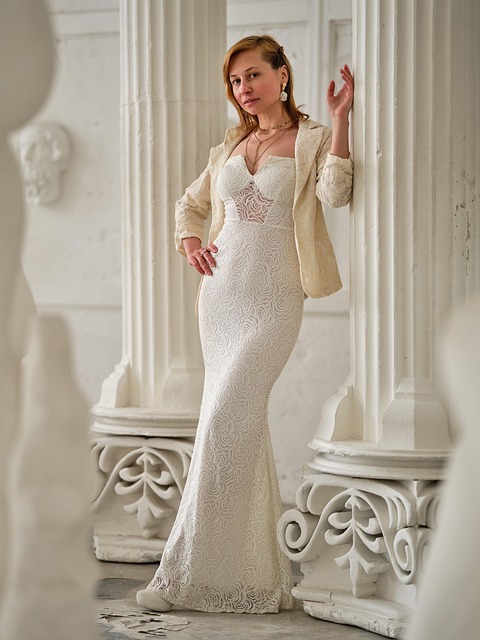
Turkish Wedding Dress with Hijab
Turkey, with its rich cultural heritage and blend of modern and traditional influences, has a unique approach to wedding fashion. Among the most captivating aspects of Turkish weddings is the wedding dress, particularly when paired with a hijab. The combination of a Turkish wedding dress with a hijab reflects elegance, modesty, and cultural pride, creating a stunning look that resonates with both tradition and contemporary style. This article explores the significance, design elements, styling tips, and cultural context of Turkish wedding dresses with hijabs, offering a comprehensive guide for brides-to-be and fashion enthusiasts.
The Cultural Significance of Turkish Wedding Dresses
Weddings in Turkey are deeply rooted in tradition, often blending Islamic values with local customs. The wedding dress, or “gelinlik,” is a central element of the celebration, symbolizing purity, beauty, and the bride’s transition into married life. For Muslim brides who choose to wear a hijab, the wedding dress is designed to align with the principles of modesty while maintaining a glamorous and festive appearance.
The hijab, a headscarf worn by many Muslim women, is not just a religious symbol but also a fashion statement. In the context of Turkish weddings, the hijab complements the wedding dress, creating a harmonious balance between modesty and sophistication. Turkish designers have embraced this combination, offering innovative designs that cater to brides who wish to honor their faith while looking radiant on their special day.
Design Elements of Turkish Wedding Dresses with Hijab
Turkish wedding dresses with hijabs are known for their intricate details, luxurious fabrics, and flattering silhouettes. Here are some key design elements that define these dresses:
1. Luxurious Fabrics
Turkish wedding dresses often feature high-quality materials such as satin, chiffon, tulle, and lace. These fabrics add a touch of opulence while ensuring comfort for the bride. For hijab-wearing brides, the dress is typically paired with a matching headscarf made of silk or satin, which drapes elegantly and complements the gown’s texture.
2. Intricate Embroidery and Embellishments
Embroidery is a hallmark of Turkish wedding dresses. Floral motifs, geometric patterns, and Ottoman-inspired designs are often hand-stitched onto the dress, adding a cultural touch. Beadwork, sequins, and crystals are also used to create a sparkling effect, making the bride stand out during the ceremony and reception.
3. Modest Silhouettes
Modesty is a key consideration for hijab-wearing brides. Turkish wedding dresses typically feature long sleeves, high necklines, and floor-length hemlines. A-line and ball gown silhouettes are popular choices, as they provide a regal appearance while adhering to modesty standards. Some dresses also incorporate detachable trains or capes for added drama.
4. Matching Hijab Styles
The hijab is styled to complement the dress, often adorned with lace trim, pearls, or delicate embroidery. Turkish brides may opt for a loosely draped hijab for a soft, romantic look or a structured turban-style hijab for a modern, bold statement. The hijab is secured with decorative pins or tiaras, adding a touch of glamour.
5. Color Palette
While white remains the traditional color for Turkish wedding dresses, modern brides are experimenting with soft pastels like ivory, blush pink, and champagne. These colors pair beautifully with hijabs and create a cohesive, elegant look. Gold and silver accents are often incorporated to enhance the dress’s luxurious appeal.
Styling Tips for Turkish Wedding Dresses with Hijab
Creating the perfect bridal look involves careful coordination of the dress, hijab, and accessories. Here are some styling tips to ensure a flawless appearance:
1. Choose Complementary Accessories
Accessories play a crucial role in completing the bridal ensemble. Opt for statement jewelry, such as chandelier earrings or a delicate necklace, that complements the dress without overwhelming it. A tiara or headpiece can add a regal touch to the hijab, while a long veil can enhance the traditional aesthetic.
2. Focus on Makeup
Makeup should enhance the bride’s natural beauty while harmonizing with the dress and hijab. Neutral tones with a touch of shimmer work well for a daytime wedding, while bold lip colors and smoky eyes can create a dramatic effect for evening celebrations. Waterproof products are recommended to ensure the makeup lasts throughout the day.
3. Consider the Venue
The wedding venue can influence the dress and hijab style. For outdoor weddings, lightweight fabrics like chiffon are ideal, while indoor venues may call for heavier materials like velvet or brocade. The hijab should be styled to stay secure, especially for events involving dancing or outdoor activities.
4. Work with a Professional Stylist
A professional stylist or hijab specialist can help achieve the desired look. They can recommend draping techniques, secure the hijab comfortably, and ensure the overall outfit is cohesive. Many Turkish bridal salons offer hijab styling services as part of their packages.
5. Personalize the Look
Every bride has a unique style, and the wedding dress should reflect her personality. Whether it’s incorporating a family heirloom, choosing a custom embroidery design, or selecting a non-traditional color, personalization adds a special touch to the ensemble.
The Role of Turkish Designers
Turkish fashion designers have gained international recognition for their bridal collections, particularly those catering to hijab-wearing brides. Designers like Özlem Süer, Hakan Akkaya, and Raşit Bağzıbağlı are known for their innovative approaches to modest fashion. They combine traditional Turkish craftsmanship with modern aesthetics, creating dresses that appeal to both local and global audiences.
Bridal boutiques in cities like Istanbul, Ankara, and Izmir offer a wide range of options for hijab-wearing brides. These boutiques often provide customization services, allowing brides to tailor the dress and hijab to their preferences. Online platforms have also made Turkish wedding dresses more accessible, with many designers shipping internationally.
Cultural and Religious Considerations
In Turkey, weddings are a blend of religious and cultural traditions. For Muslim brides, the wedding dress and hijab must adhere to Islamic guidelines for modesty, which emphasize covering the hair, neck, and body. However, this does not limit creativity. Turkish brides often embrace vibrant designs that celebrate their heritage while staying true to their faith.
The henna night, or “kına gecesi,” is a significant pre-wedding tradition in Turkey. During this event, brides may wear a traditional outfit, such as a kaftan, before switching to their wedding dress for the main ceremony. The hijab is often styled differently for each event, showcasing versatility and elegance.
Modern Trends in Turkish Wedding Dresses with Hijab
As fashion evolves, so do Turkish wedding dresses with hijabs. Some modern trends include:
- Minimalist Designs: Simple, elegant dresses with clean lines and subtle embellishments are gaining popularity among brides who prefer understated glamour.
- Bold Colors: While white remains a classic, shades like emerald green, royal blue, and burgundy are emerging as bold choices for hijab-wearing brides.
- Mix-and-Match Separates: Some brides opt for two-piece sets, combining a long skirt with a tailored top, allowing for greater flexibility and comfort.
- Sustainable Fashion: Eco-conscious brides are choosing dresses made from sustainable fabrics or supporting designers who prioritize ethical production practices.
The Turkish wedding dress with a hijab is a beautiful fusion of tradition, modesty, and modern elegance. With luxurious fabrics, intricate details, and thoughtful styling, these dresses allow brides to shine on their special day while honoring their cultural and religious values. Whether opting for a classic white gown or a bold, colorful ensemble, Turkish brides have endless options to create a look that is uniquely their own. By working with skilled designers and stylists, brides can ensure their wedding dress and hijab reflect their personal style and the joy of the occasion.
This timeless combination continues to inspire brides worldwide, showcasing the beauty of Turkish craftsmanship and the universal language of love and celebration.
Turkish Bridal Dress Online
Turkish bridal dresses are renowned for their intricate designs, luxurious fabrics, and a perfect blend of tradition and modernity. With the rise of online shopping, finding the perfect Turkish bridal dress has never been easier. This article explores the allure of Turkish bridal dresses, tips for shopping online, and how to choose the ideal gown for your special day.
The Charm of Turkish Bridal Dresses
Turkish bridal dresses stand out for their unique combination of cultural heritage and contemporary elegance. Inspired by Ottoman motifs, Anatolian craftsmanship, and modern fashion trends, these dresses often feature:
- Intricate Embroidery: Hand-stitched details with gold or silver threads, floral patterns, and geometric designs.
- Luxurious Fabrics: Satin, tulle, lace, and silk are commonly used, offering a regal and sophisticated look.
- Diverse Styles: From flowing A-line gowns to regal ball gowns and modern mermaid cuts, there’s a style for every bride.
- Cultural Elements: Some designs incorporate traditional elements like kaftans, headpieces, or veils inspired by Turkish heritage.
Whether you’re drawn to a classic white gown or a dress with bold, colorful accents, Turkish bridal dresses cater to a wide range of preferences.
Why Shop for Turkish Bridal Dresses Online?
Shopping for a Turkish bridal dress online offers unparalleled convenience and variety. Here are some key benefits:
- Global Access: Online platforms allow you to explore designs from top Turkish designers and boutiques, no matter where you are in the world.
- Wide Selection: From high-end designers to affordable options, online stores offer dresses for every budget and style.
- Customization Options: Many online retailers provide bespoke services, allowing you to tailor the dress to your measurements and preferences.
- Customer Reviews: Reading reviews and viewing photos from other brides can help you make an informed decision.
- Convenience: Shop from the comfort of your home, compare prices, and have the dress delivered to your doorstep.
Popular platforms like Etsy, Turkish boutique websites, and international bridal retailers often feature a dedicated section for Turkish-inspired or authentic Turkish bridal dresses.
Tips for Buying Turkish Bridal Dresses Online
To ensure a seamless online shopping experience, keep these tips in mind:
- Research Designers and Retailers: Look for reputable Turkish designers like Züleyha Kuru, Aysira, or Akay Bridal, known for their quality craftsmanship. Verify the authenticity of online stores by checking reviews and ratings.
- Check Size Charts: Turkish sizing may differ from international standards. Always refer to the retailer’s size chart and provide accurate measurements for custom orders.
- Understand Fabric and Details: Read product descriptions carefully to understand the materials, embellishments, and care instructions.
- Factor in Shipping and Customs: International shipping may involve additional costs or customs fees. Check the retailer’s shipping policies and delivery timelines to avoid last-minute stress.
- Order Early: Custom-made dresses can take weeks or months to produce and ship. Place your order well in advance to allow time for fittings and alterations.
- Communicate with Sellers: Reach out to the retailer with any questions about customization, returns, or alterations before purchasing.
- Look for Return Policies: Ensure the retailer has a clear return or exchange policy in case the dress doesn’t meet your expectations.
How to Choose the Perfect Turkish Bridal Dress
Selecting the right Turkish bridal dress depends on your personal style, body type, and wedding theme. Here are some factors to consider:
- Body Type:
- Pear-Shaped: A-line dresses or empire waist gowns can balance your silhouette.
- Hourglass: Mermaid or fitted dresses highlight your curves.
- Petite: Avoid overly voluminous gowns and opt for sleek, tailored designs.
- Plus-Size: Flowing fabrics like chiffon or structured ball gowns can be flattering.
- Wedding Theme: Match the dress to your wedding’s vibe. A traditional Turkish wedding might call for a kaftan-inspired gown, while a modern beach wedding suits a lightweight, minimalist dress.
- Color Palette: While white and ivory are classic, Turkish dresses often feature gold, blush, or pastel accents for a unique touch.
- Comfort: Ensure the dress allows ease of movement, especially if your wedding involves dancing or long ceremonies.
- Accessories: Turkish bridal dresses pair beautifully with traditional accessories like ornate headpieces, veils, or statement jewelry. Coordinate these elements for a cohesive look.
Top Online Platforms for Turkish Bridal Dresses
Here are some trusted platforms to explore:
- Etsy: Offers a range of handmade and custom Turkish bridal dresses from independent designers.
- Hepsiburada or Trendyol: Popular Turkish e-commerce sites with bridal collections from local designers.
- Designer Websites: Many Turkish designers, such as Pronovias Turkey or Vakko Wedding, have online stores with international shipping.
- Instagram Boutiques: Follow Turkish bridal boutiques on Instagram for exclusive designs and direct ordering options.
Always verify the credibility of the platform and read customer feedback before making a purchase.
Turkish bridal dresses are a stunning choice for brides seeking elegance, tradition, and individuality. Shopping online opens up a world of possibilities, allowing you to find a gown that reflects your style and heritage. By researching designers, understanding sizing, and planning ahead, you can confidently choose a Turkish bridal dress that makes your wedding day unforgettable. Start your search today and embrace the timeless beauty of Turkish craftsmanship!
Traditional Turkish Wedding Dress
Turkish wedding dresses, deeply rooted in cultural heritage, are a vibrant reflection of Turkey’s rich history, regional diversity, and artistic traditions. Known as “gelinlik” in Turkish, these dresses vary across regions, blending Ottoman influences, Anatolian craftsmanship, and modern aesthetics. Below, we explore the traditional elements, styles, and significance of Turkish wedding dresses.
Historical and Cultural Significance
Wedding dresses in Turkey are more than just attire; they symbolize family heritage, social status, and regional identity. Historically, Ottoman-era brides wore elaborate garments adorned with intricate embroidery and luxurious fabrics, showcasing the wealth and artistry of the empire. In rural Anatolia, handmade dresses were crafted by families, often passed down through generations, symbolizing continuity and familial bonds.
Each region in Turkey has distinct styles, influenced by local customs and available materials. For instance, the Aegean region favors lighter fabrics and floral motifs, while Central Anatolia incorporates bold geometric patterns. These dresses are not only worn for the wedding ceremony but also during traditional events like the henna night (kına gecesi), where brides often wear a separate, richly decorated outfit.
Key Elements of Traditional Turkish Wedding Dresses
Traditional Turkish wedding dresses are characterized by their opulence, detailed craftsmanship, and symbolic accessories. Below are some defining features:
1. Bindallı
The bindallı is a traditional velvet or satin dress, often worn during the henna night or as a secondary outfit during the wedding. It is heavily embroidered with gold or silver threads, featuring floral or paisley motifs. The bindallı is typically ankle-length, with long sleeves and a fitted bodice, exuding elegance and grandeur. Brides pair it with a matching headpiece or veil, often adorned with lace or embroidery.
2. Yemeni and Headpieces
A key accessory in Turkish bridal attire is the “yemeni,” a decorative headscarf or veil, often made of silk or lace and embellished with intricate needlework.
Wedding Dresses in Turkey Istanbul
Istanbul, Turkey’s vibrant cultural and historical hub, is a melting pot of tradition and modernity, and this is vividly reflected in its wedding dresses. Known as “gelinlik” in Turkish, wedding dresses in Istanbul combine Ottoman elegance, Anatolian craftsmanship, and contemporary design, making the city a renowned destination for bridal fashion. This article explores the unique characteristics, cultural significance, and modern trends of wedding dresses in Istanbul.
Cultural and Historical Context
Istanbul’s wedding dresses are deeply influenced by its Ottoman past, where brides wore luxurious garments adorned with intricate embroidery, gold threads, and precious stones to signify wealth and status. The city’s position as a crossroads of East and West has shaped its bridal fashion, blending Turkish traditions with global influences. From the opulent palaces of the Ottoman era to the bustling ateliers of modern Istanbul, wedding dresses here are a testament to the city’s rich heritage and cosmopolitan flair.
In Istanbul, wedding dresses are not only worn for the ceremony but also play a central role in pre-wedding rituals like the henna night (kına gecesi), where brides often don a traditional outfit distinct from the main wedding gown. These dresses reflect both personal style and cultural identity, making them a focal point of the celebration.
Turkish Wedding Dress Guest
Attending a Turkish wedding is a vibrant and culturally rich experience, and choosing the right outfit as a guest is essential to honor the occasion. Turkish weddings are known for their grandeur, blending traditional customs with modern elegance, and guest attire reflects this balance. This article explores the etiquette, styles, and cultural considerations for dressing as a guest at a Turkish wedding, ensuring you look stylish while respecting local traditions.
Cultural Context of Turkish Weddings
Turkish weddings are joyous celebrations often spanning multiple events, including the henna night (kına gecesi), the main ceremony, and the reception. These gatherings vary by region and setting—urban weddings in cities like Istanbul may lean toward cosmopolitan glamour, while rural weddings embrace traditional elements. Guests are expected to dress respectfully, reflecting the significance of the occasion and the couple’s cultural heritage.
In Turkey, weddings are a display of hospitality, and guests play a key role in creating a festive atmosphere. Your attire should convey respect for the couple and their families, while aligning with the event’s formality and cultural nuances.
Turkish Wedding Dress Price
Turkish wedding dresses, known as “gelinlik,” are celebrated for their exquisite craftsmanship, blending traditional Ottoman influences with modern designs. Turkey, particularly Istanbul, is a global hub for bridal fashion, offering a wide range of styles at various price points. This article explores the factors influencing Turkish wedding dress prices, typical price ranges, and tips for finding the perfect dress within your budget.
Factors Influencing Turkish Wedding Dress Prices
Several factors determine the cost of a Turkish wedding dress, reflecting the diversity and quality of options available:
1. Design and Craftsmanship
- Handmade Details: Dresses with intricate embroidery, lacework, or beading, often inspired by Ottoman or Anatolian motifs, command higher prices due to the skilled labor involved.
- Designer Reputation: Gowns by renowned Turkish designers like Dilek Hanif, Gül Hürgel, or international names like Zuhair Murad (with a strong presence in Turkey) are pricier due to brand prestige.
- Custom-Made vs. Off-the-Rack: Bespoke dresses tailored to a bride’s measurements and preferences are more expensive than ready-to-wear options.
2. Fabric and Materials
- Luxurious fabrics like silk, satin, velvet, or high-quality tulle increase costs. Dresses with embellishments such as Swarovski crystals, pearls, or gold thread are also pricier.
- Traditional bindallı dresses, often made of velvet with gold or silver embroidery, can be costly due to their rich materials and detailed craftsmanship.
3. Location and Retail Type
- Istanbul’s Bridal Hubs: High-end boutiques in Nişantaşı or Bağdat Avenue charge premium prices, while shops in Fatih or Laleli offer more affordable options.
- Markets vs. Boutiques: Istanbul’s Grand Bazaar or Mahmoud Pasha Markets provide budget-friendly dresses, often at a fraction of boutique prices.
- Online Retail: E-commerce platforms like Abiyefon, ModaNisa, or Trendyol offer competitive prices, especially for international buyers, but shipping and alteration costs may apply.
4. Season and Demand
- Prices may rise during peak wedding seasons (spring and summer). Shopping in the off-season (winter) can yield discounts, as boutiques clear previous collections.
- Wholesale purchases for retailers are often more cost-effective, with bulk prices significantly lower than retail.
Typical Price Ranges
Turkish wedding dress prices vary widely based on the factors above. Below are approximate ranges in USD, based on available data and market trends as of 2025:
- Budget-Friendly Dresses: $100–$500
- Found in smaller shops, markets like the Grand Bazaar, or online platforms like Abiyefon.
- Basic designs with simpler fabrics (e.g., synthetic tulle or minimal lace).
- Suitable for brides seeking affordable yet elegant options.
- Mid-Range Dresses: $500–$2,500
- Available in mid-tier boutiques in Fatih or Laleli, or from brands like Akaya or Mila.
- Feature better-quality fabrics (e.g., satin, mid-grade lace) and moderate embellishments.
- Includes many A-line, mermaid, or princess-style gowns with hand-embroidered details.
- Luxury and Designer Dresses: $2,500–$12,000+
- Offered by high-end boutiques in Nişantaşı or designers like Vakko, Tarik Ediz, or Rashid Bağzıbağlı.
- Use premium fabrics (e.g., silk, high-quality lace) and intricate detailing (e.g., crystal beading, long trains).
- Custom-made gowns or international designer brands (e.g., Zuhair Murad, Elie Saab) can exceed $12,000.
- Wholesale Prices: $100–$2,500 per piece
- Aimed at retailers via platforms like Istanbul Fashion Center or Amarya Bridal.
- Bulk purchases reduce costs, with prices depending on design complexity and order volume.
Note: Prices in Turkish Lira fluctuate due to currency exchange rates. As of 2025, budget dresses start at around 20,000 TRY, while luxury gowns can reach 350,000 TRY or more.
Where to Shop for Turkish Wedding Dresses
1. Istanbul Boutiques
- Nişantaşı: Home to luxury designers and brands like Vakko, offering bespoke and high-end gowns. Expect prices from $2,500 upward.
- Fatih (Fevzi Paşa Street): A hub for mid-range and budget dresses, with prices starting at $200. Ideal for off-the-rack shopping.
- Laleli and Beyazıt: Known for affordable evening and wedding dresses, with stores like Sky Kamer offering diverse models at reasonable prices.
2. Markets
- Grand Bazaar and Mahmoud Pasha Markets: Offer budget-friendly dresses and accessories, with prices as low as $100–$500. Bargaining is common.
3. Online Platforms
- Websites like Abiyefon, Alfa Beta, or DHgate provide a range of styles, from budget to mid-range, with international shipping. Prices start at $100.
- Check designer websites (e.g., Pronovice, Mila) for mid-to-high-end options, often with customization services.
4. Antalya and Other Cities
- In Antalya’s Gençlik neighborhood, shops offer classy yet affordable dresses, often cheaper than Istanbul’s high-end boutiques. Prices range from $100–$2,000.
Tips for Finding an Affordable Turkish Wedding Dress
- Shop Off-Season: Visit boutiques or markets in winter for discounts on previous collections.
- Consider Off-the-Rack: Ready-to-wear dresses in Fatih or online are significantly cheaper than custom-made options.
- Bargain in Markets: In places like the Grand Bazaar, negotiating can lower prices, especially for cash payments.
- Order Early: Allow 4–6 months for custom orders to avoid rush fees and ensure proper fittings.
- Check Online Reviews: For online purchases, verify sizing charts and read customer reviews to avoid sizing or quality issues.
- Hire a Translator: In smaller shops, a translator can help negotiate better deals, as English-speaking staff may charge more.
- Explore Second-Hand Options: Platforms like Sahibinden or social media groups (e.g., Buy Sell Swap Istanbul) offer pre-owned dresses at reduced prices.

